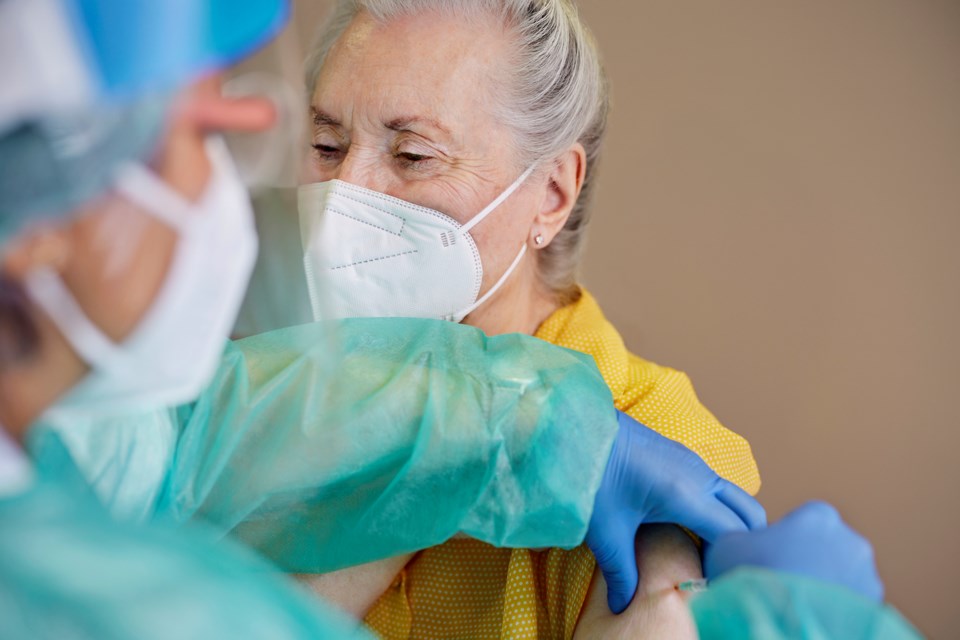With British Columbia’s COVID-19 vaccine booster program ramping up and third doses now in the arms of 500,000 residents, what’s next?
One year into B.C.’s vaccination program, booster invitations are going out this week to those aged 65 and up. Younger residents will gradually be receiving invites next year, six months after their second dose.
Health officials are encouraging booster doses for everyone in the face of vaccine protection waning over time and mutated variants.
Provincial health officer Dr. Bonnie Henry was asked this week if British Columbians are now faced with a schedule of regular booster doses.
“No,” Henry responded. “Let me make that a qualified no, we don't yet know.”
“But looking at the way this virus has mutated and changed over time, what we need to do is focus on immunizing other parts of the world,” she continued.
“It's where this virus transmits rapidly amongst large numbers of people that these unusual mutations or mixing in assortments can come up and it's because of that we have low levels of protection of immunity through vaccination in many parts of the world that we all have to continue to be on our guard.”
Henry said “vaccine equity” around the world needs to be considered. The World Health Organization has condemned booster doses in rich countries while poorer nations remain largely unvaccinated.
“This virus is going to be with us, that is clear,” Henry said, reflecting the growing consensus that the virus will never be eradicated and will evolve into an endemic situation like seasonal influenza.
Many countries in Africa have vaccination rates well under 10 per cent. Many poorer countries in South America are sitting well below 50 per cent. South Africa's President Cyril Ramaphosa the hoarding of vaccines by richer countries as "vaccine apartheid."
Henry, however, announced Tuesday that fourth doses would be offered through the booster program to immunocompromised people who received a three-dose regime from the outset.
“We don't yet know if there's going to be a need for another booster dose at all,” she continued, adding that these upcoming set of boosters could be enough to last long term. Or, they could be needed every “two or three or five years.”
“Those are questions that will still have to follow.”
that a booster dose of its COVID-19 vaccine may offer important protection against the new omicron variant even though the initial two doses appear significantly less effective.
Pfizer and its partner BioNTech said that while two doses may not be protective enough to prevent infection, lab tests showed a booster increased by 25-fold people's levels of virus-fighting antibodies.
Elsewhere in the world, Israel’s health minister said this week it is possible a second booster dose, or fourth dose overall, is being considered for all citizens.
Israel and France have both started requiring a booster dose for citizens to be considered fully vaccinated under each nation's health pass systems.
Dr. Nazeem Muhajarine, an epidemiologist in Saskatoon, this week it’s possible Canada will follow suit, although not for some time.
“So they have had a long experience in boosting their population compared to Canada,” he told CTV. “That being said, I think, you know, give it two, three months, I can’t see how we will not follow a similar approach to Israel, and that is people who are eligible to get a third shot and completed that would be considered fully vaccinated at that time.”



